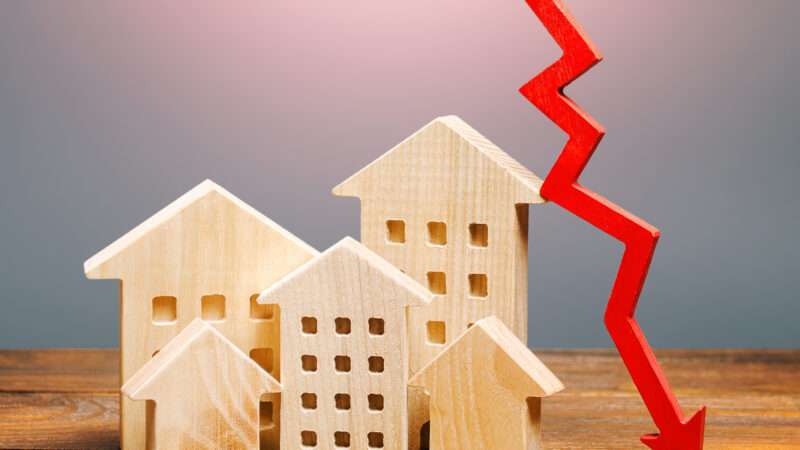
New U.S. home construction is plunging after a brief pandemic boom, showing the strain of continued supply chain woes mixed with persistently high inflation.
Data released Tuesday by the U.S. Census Bureau and U.S. Department of Housing and Urban Development show that 1,446,000 new homes started construction in July, a 9.6 percent fall from June and an 8 percent fall from July last year.
This is the latest bit of bad news to come out of the industry, adding to the growing pessimism in the homebuilding sector.
"A housing recession is underway with builder sentiment falling for eight consecutive months while the pace of single-family home building has declined for the last five months," said National Association of Home Builders Chief Economist Robert Dietz in a press release. He did note that multifamily construction, while down in July, was still up nearly 20 percent from 2021.
The talk of a housing recession was echoed by credit reporting agency Finch, which said the likelihood of a "severe downturn" in the housing sector featuring price declines of 10 to 15 percent had increased. They still predict a more moderate, rather than severe, downturn in both prices and homebuilding is most likely.
Some analysts are pointing to buyers being discouraged by record high prices and the rising interest rates that have come with Federal Reserve belt-tightening as the reason for the slowdown.
"Prospective home buyers have gotten to the place that they are either intentionally stepping out of the housing market as they wait and see what happens next or are forced out of the housing market given the higher costs of homeownership," Ali Wolf, chief economist at real estate company Zonda, told The Washington Post.
As of May, home prices had grown 20 percent this year, as measured by the Case-Shiller Home Price Index. Housing affordability—measured as a ratio of housing costs to income—is at its worst since the 1980s.
Kevin Erdmann, a senior affiliated scholar at George Mason University's Mercatus Center, cautions against reading the fall in housing starts as a sign of a housing recession or more general economic contraction. Rather, he says it's a product of temporarily inflated housing starts falling to reflect the actual capacity of builders to construct new housing.
During the pandemic, housing starts rose at a much faster rate than housing completions. Erdmann chalks this up to a mix of elevated demand for new homes colliding with COVID-caused supply chain problems limiting the ability of homebuilders to service that demand. Home prices shot up, and, for a time, so did profit margins on those homes.
"Builders were willing to meet that demand by raising prices but taking some of the extra margin," says Erdman. Those higher margins meant they'd be willing to start projects they couldn't complete on time.
Those supply chain problems haven't gone away. But persistent inflation is starting to eat into the elevated margins builders were earning, he says.
Indeed, the price of building materials continued to tick up in July, according to the latest Producer Price Index. They've risen 35 percent since 2020, with most of that increase coming after 2021. Labor shortages have also hit construction companies hard.
That all means builders are less willing to take on new projects.
The good news is that housing starts remain above housing completions, and those completions have remained steady throughout the year.
"The slowdown we've seen so far is unwinding that excess," says Erdmann. "It's not necessarily a contraction."
This is still hardly an ideal situation. One would have hoped instead that easing supply chain issues would have seen housing completions rise to meet housing starts. That clearly isn't happening.
It also comes after over a decade of underbuilding in most American cities following the Great Recession. The country is still short an estimated 4 million to 20 million homes.
Addressing long-term affordability issues exacerbated by the pandemic will require building more. Until that happens, says Erdmann, we can expect home prices and rents to stay high.
The post The Pandemic Home-Building Boom Is Over appeared first on Reason.com.


.png?w=600)




